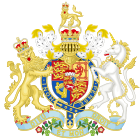Additional Forces Acts 1803
| Act of Parliament | |
 | |
| Long title | An Act to enable his Majesty more effectually to raise and assemble in England an additional Military Force for the better Defence and Security of the United Kingdom and for the more vigorous Prosecution of the War. |
|---|---|
| Citation | 43 Geo. 3. c. 82 |
| Territorial extent | England |
| Dates | |
| Royal assent | 6 July 1803 |
| Other legislation | |
| Repealed by | Statute Law Revision Act 1872 |
Status: Repealed | |
| Text of statute as originally enacted | |
| Act of Parliament | |
 | |
| Long title | An Act to enable his Majesty more effectually to raise and assemble an additional Military Force in Scotland for the better Defence and Security of the United Kingdom and for the more vigorous Prosecution of the War. |
|---|---|
| Citation | 43 Geo. 3. c. 83 |
| Territorial extent | Scotland |
| Dates | |
| Royal assent | 6 July 1803 |
| Other legislation | |
| Repealed by |
|
Status: Repealed | |
| Text of statute as originally enacted | |
| Act of Parliament | |
 | |
| Long title | An Act to enable his Majesty more effectually to raise and assemble in Ireland an additional Military Force for the better Defence and Security of the United Kingdom and for the vigorous Prosecution of the War. |
|---|---|
| Citation | 43 Geo. 3. c. 85 |
| Territorial extent | Ireland |
| Dates | |
| Royal assent | 11 July 1803 |
| Other legislation | |
| Repealed by | Statute Law Revision Act 1872 |
Status: Repealed | |
| Text of statute as originally enacted | |
A set of three Additional Forces Acts of July 1803 created an Army of Reserve for the defence of the United Kingdom of Great Britain and Ireland against the imminent threat of sea-borne invasion by Napoleon's French Revolutionary Army. A total of 15,780 men were added to the country's armed forces by these compulsory measures, creating an "Army of Reserve".
The acts – one each for England (43 Geo. 3. c. 82), Scotland (c. 83) and Ireland (c. 85) – were passed by William Pitt the Younger despite strong political opposition.[1][2]
See also[edit]
References[edit]
- ^ "Great Britain: Number of Men Raised for the Regular Army by Ordinary Recruiting". The Napoleon Series. Retrieved 7 September 2018.
- ^ Pollard, Albert Frederick (1911). . In Chisholm, Hugh (ed.). Encyclopædia Britannica. Vol. 9 (11th ed.). Cambridge University Press. p. 553.
